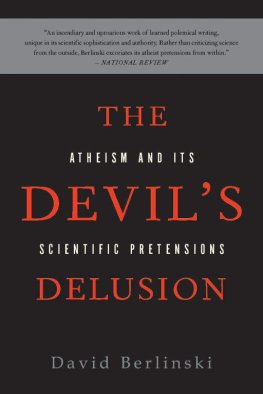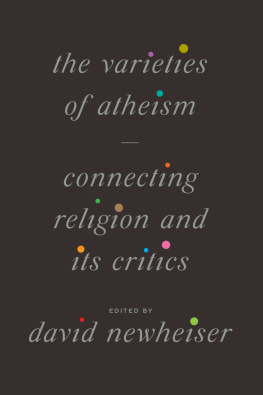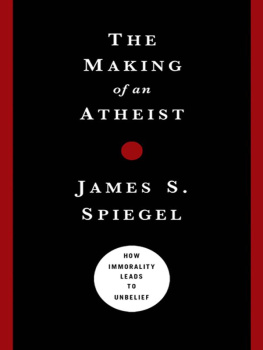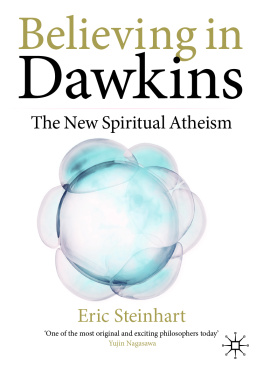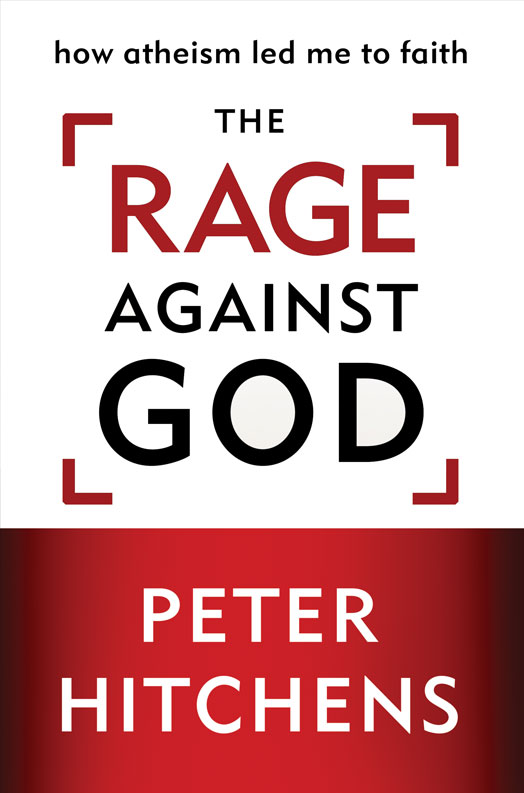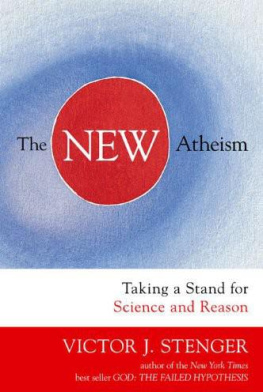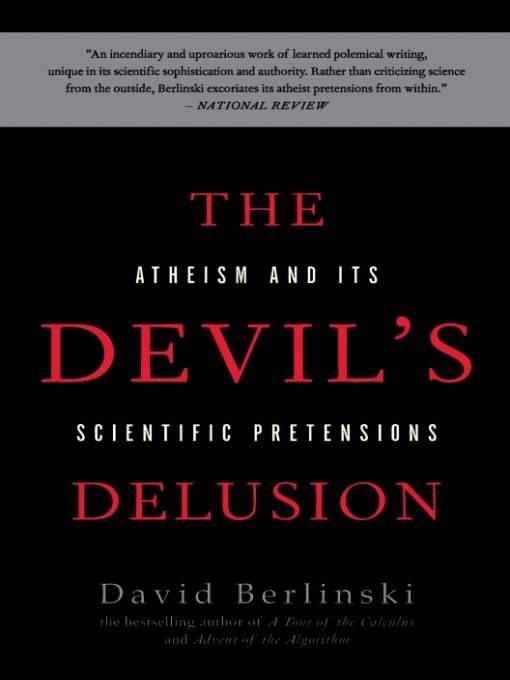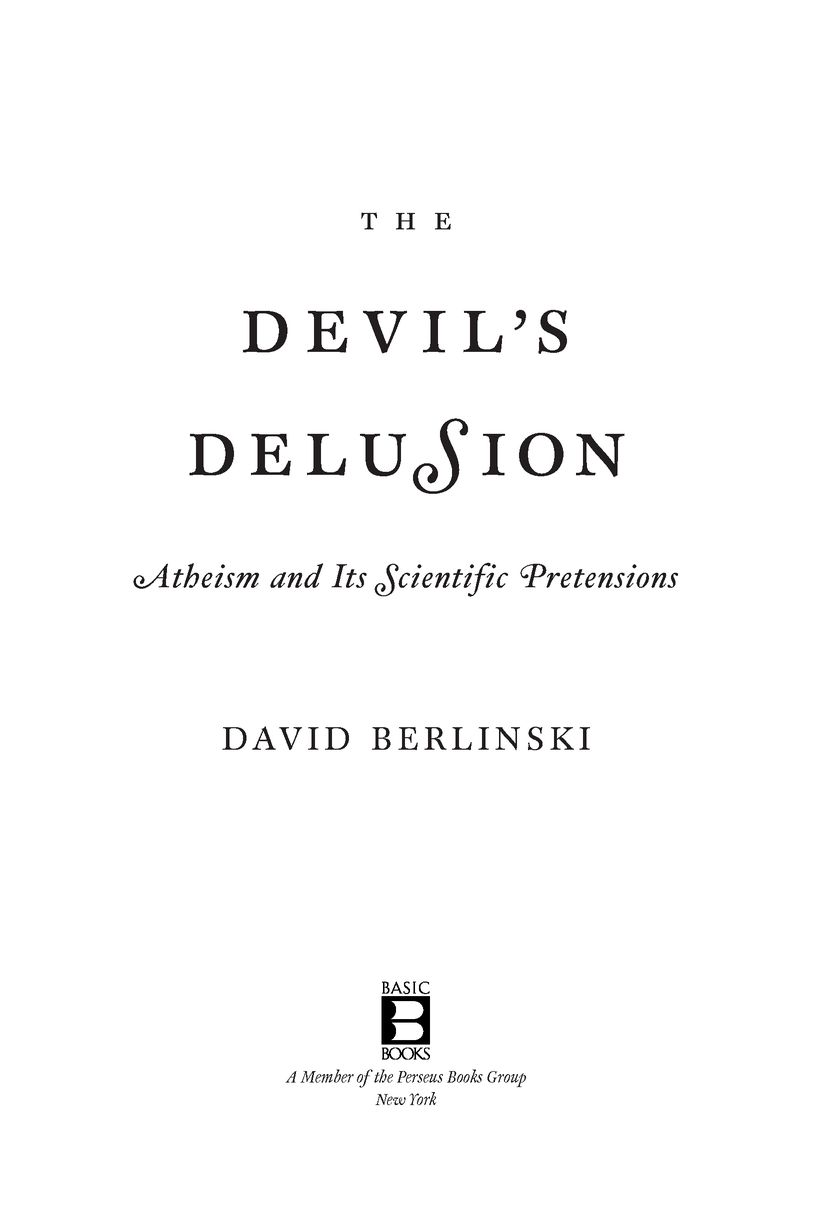Table of Contents
To the memory of
my maternal grandfather
SAMUEL GOLDFEIN
15.1.1877 Pruzani
auf den Transportlisten von 19.9.42 um 17.2.43 gestrichen
am 27.2.43 nach Dresden
am 29.3.43 nach Theresienstadt
am 18.12.43 nach Auschwitz deportiert
in Auschwitz verschollen
He must have a long spoon that must eat with the devil.
SHAKESPEARE, The Comedy of Errors
PREFACE TO THE SECOND EDITION
I AM GRATEFUL to Basic Books for bringing out the second edition of The Devils Delusion: Atheism and its Scientific Pretensions and grateful to those who made it possible: Lara Heimert, Susan Ginsburg, Diana Banister, Steven Meyer, Rob Crowther and John West.
I could have no better friends.
Apart from correcting a few typographic mistakes and pruning a few superfluous sentences from the text, I have made no changes to the original edition.
PREFACE TO THE FIRST EDITION
AT THE beginning of his Letter to a Christian Nation, Sam Harris writes that his fiercest and most disturbed critics are Christians who are deeply, even murderously, intolerant of criticism. It would seem that a good many of those intolerant critics have been sending Harris biblical verses supporting their intolerance. Now, I count myself among Harriss warmest detractors. When he remarks that he has been dumbstruck by Christian and Moslem intellectual commitments, I believe the word has met the man. But here it is, an inconvenient fact: I am a secular Jew. My religious education did not take. I can barely remember a word of Hebrew. I cannot pray. I have spent more years than I care to remember in studying mathematics and writing about the sciences. Yet the book that follows is in some sense a defense of religious thought and sentiment. Biblical verses are the least of it.
A defense is needed because none has been forthcoming. The discussion has been ceded to men who regard religious belief with frivolous contempt. Their books have in recent years poured from every press, and although differing widely in their style, they are identical in their message: Because scientific theories are true, religious beliefs must be false. Harris has conveyed the point by entitling an essay Science Must Destroy Religion. His call to jihad cannot be long delayed.
If science stands opposed to religion, it is not because of anything contained in either the premises or the conclusions of the great scientific theories. They do not mention a word about God. They do not treat of any faith beyond the one that they themselves demand. They compel no ritual beyond the usual rituals of academic life, and these involve nothing more than the worship of what is widely worshipped. Confident assertions by scientists that in the privacy of their chambers they have demonstrated that God does not exist have nothing to do with science, and even less to do with Gods existence.
In all this, two influential ideas are at work. The first is that there is something answering to the name of science. The second is that something answering to the name of science offers sophisticated men and women a coherent vision of the universe. The second claim is false if the first claim is.
And the first claim is false. Nothing answers to the name of science. And Nothing has no particular method either, beyond the immemorial dictates of common sense.
Like democracy or justice, science is a word exhausted by its examples. We have been vouchsafed four powerful and profound scientific theories since the great scientific revolution of the West was set in motion in the seventeenth centuryNewtonian mechanics, James Clerk Maxwells theory of the electromagnetic field, special and general relativity, and quantum mechanics. These are isolated miracles, great mountain peaks surrounded by a range of low, furry foothills. The theories that we possess are magnificent, profound, difficult, sometimes phenomenally accurate, as the distinguished mathematician Roger Penrose has observed, but, as he at once adds, they also comprise a tantalizingly inconsistent scheme of things.
These splendid artifacts of the human imagination have made the world more mysterious than it ever was. We know better than we did what we do not know and have not grasped. We do not know how the universe began. We do not know why it is there. Charles Darwin talked speculatively of life emerging from a warm little pond. The pond is gone. We have little idea how life emerged, and cannot with assurance say that it did. We cannot reconcile our understanding of the human mind with any trivial theory about the manner in which the brain functions. Beyond the trivial, we have no other theories. We can say nothing of interest about the human soul. We do not know what impels us to right conduct or where the form of the good is found.
On these and many other points as well, the great scientific theories have lapsed. The more sophisticated the theories, the more inadequate they are. This is a reason to cherish them. They have enlarged and not diminished our sense of the sublime.
No scientific theory touches on the mysteries that the religious tradition addresses. A man asking why his days are short and full of suffering is not disposed to turn to algebraic quantum field theory for the answer. The answers that prominent scientific figures have offered are remarkable in their shallowness. The hypothesis that we are nothing more than cosmic accidents has been widely accepted by the scientific community. Figures as diverse as Bertrand Russell, Jacques Monod, Steven Weinberg, and Richard Dawkins have said it is so. It is an article of their faith, one advanced with the confidence of men convinced that nature has equipped them to face realities the rest of us cannot bear to contemplate. There is not the slightest reason to think this so.
While science has nothing of value to say on the great and aching questions of life, death, love, and meaning, what the religious traditions of mankind have said forms a coherent body of thought. The yearnings of the human soul are not in vain. There is a system of belief adequate to the complexity of experience. There is recompense for suffering. A principle beyond selfishness is at work in the cosmos. All will be well.
I do not know whether any of this is true. I am certain that the scientific community does not know that it is false.
Occupied by their own concerns, a great many men and women have a dull, hurt, angry sense of being oppressed by the sciences. They are frustrated by endless scientific boasting. They suspect that as an institution, the scientific community holds them in contempt. They feel no little distaste for those speaking in its name.
They are right to feel this way. I have written this book for them.
CHAPTER 1
No Gods Before Me
UNTIL JUST yesterday, it was fashionable for scientists carefully to cast their bread upon various ecclesiastical waters. Very carefully. In writing about Darwins God, the biologist Kenneth Miller affirmed that he saw no conflict whatsoever between his own Catholic faith and Darwins theory of evolution. Francis Collins, who directed the Human Genome Project, has made a very similar case for his religious beliefs. Science and religion, Stephen Jay Gould remarked, constitute Non-Overlapping Magisteria. Science is a fine thing. Religion is a fine thing too. They are two very fine things. The great master of this tolerant spirit was Albert Einstein. What was it he said? Science without religion is lame, religion without science is blind. The lame and the blind excepted, who could object?


